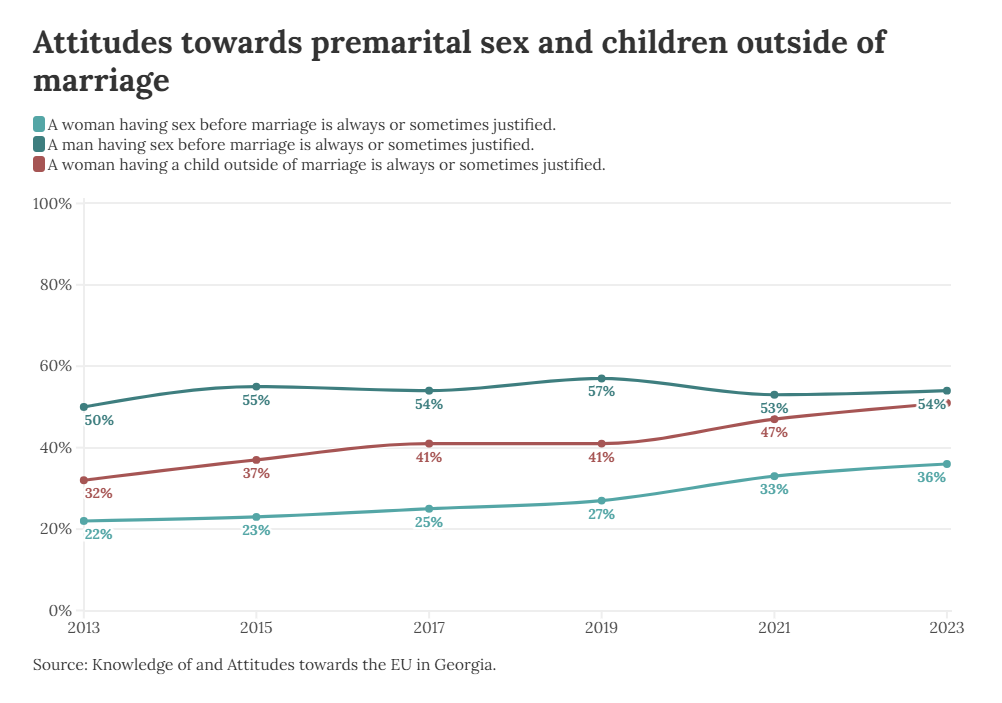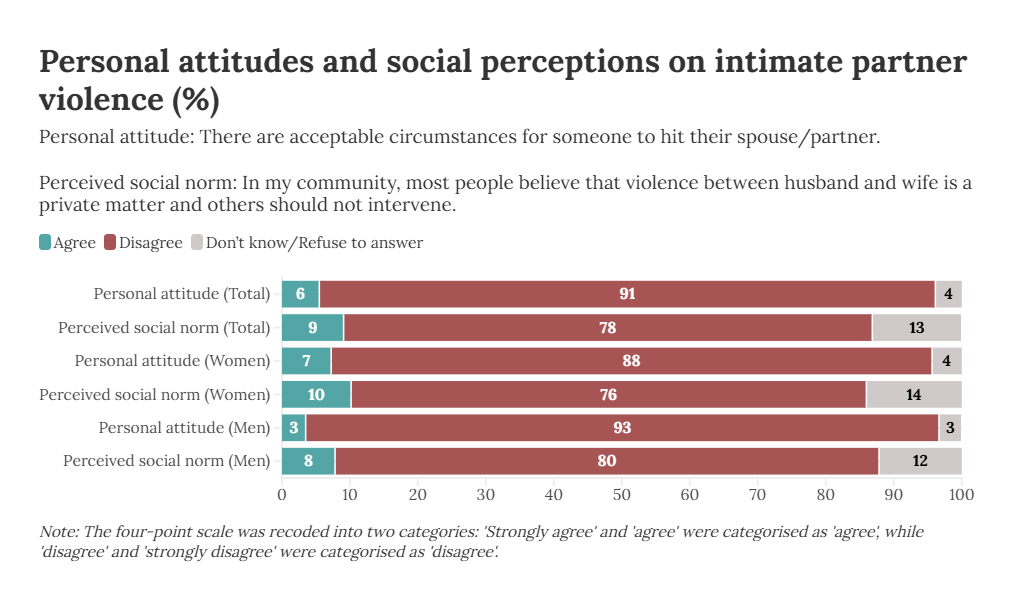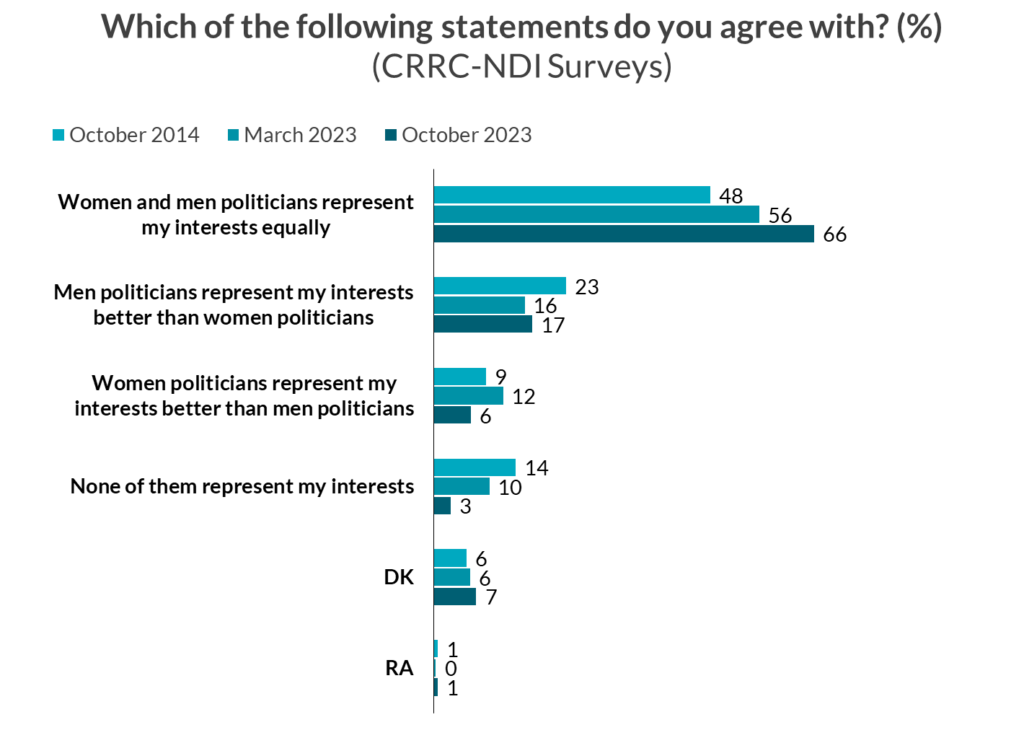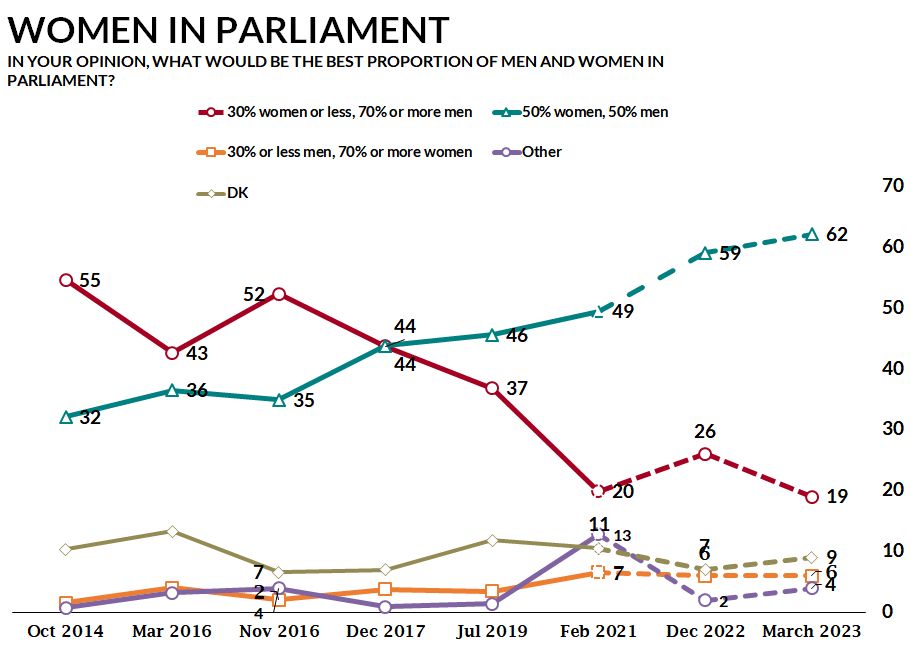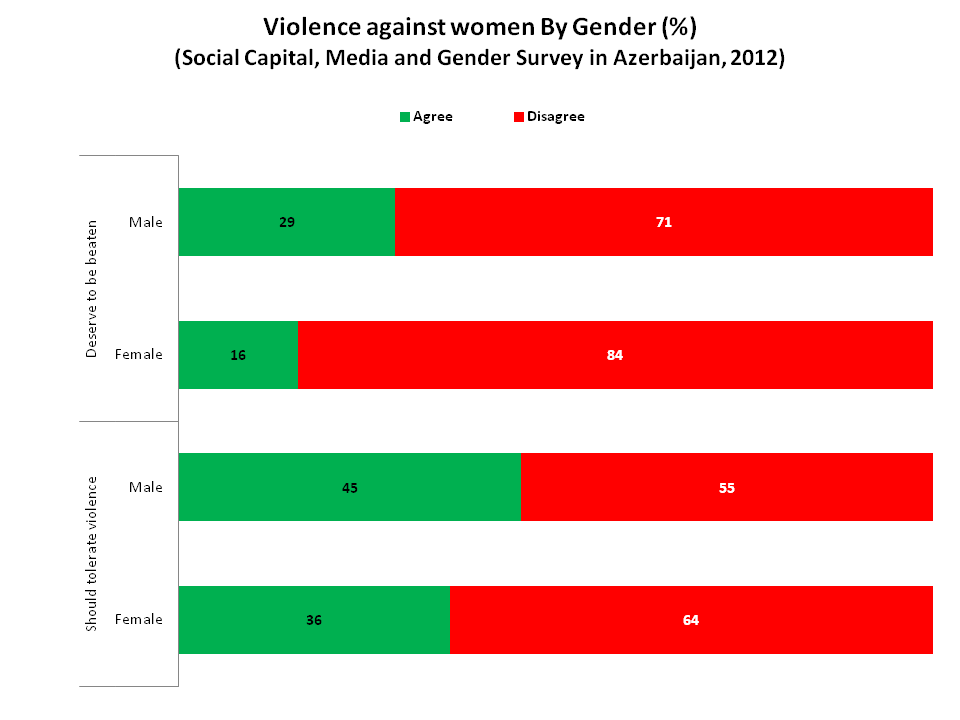
The UN Women 2024 survey shows that while Georgians strongly support equal access to higher education and equal pay for women and men, many still believe women should prioritize family care over pursuing a career. These attitudes are especially strong…
